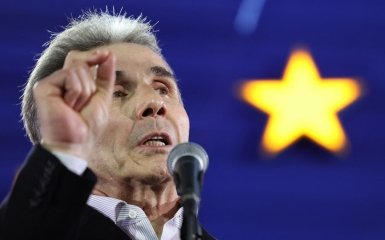On December 27, the United States decided to impose sanctions against Bidzina Grigoris Dze Ivanishvili, the founder and chairman of Georgia's ruling Georgian Dream party.
Points of attention
- US sanctions against Bidzina Ivanishvili aim to prevent a democratic crisis in Georgia and curb Russia's influence in the region.
- Ivanishvili and his party's actions have undermined democratic institutions, led to human rights abuses, and restricted fundamental freedoms in Georgia.
- The US condemns Ivanishvili's policies, including involvement in crackdowns on protesters and media workers, emphasizing justice for the victims.
- Lithuania has also imposed sanctions against Georgian officials for dispersing protests, including Ivanishvili and other key figures in the Ministry of Internal Affairs.
- The sanctions reflect international concern over the situation in Georgia and efforts to uphold democratic values and human rights in the region.
Ivanishvili hit by US sanctions
This is stated on the website of the US State Department.
According to the report, Washington declared him persona non grata "for undermining Georgia's democratic and Euro-Atlantic future in favor of the Russian Federation."
The actions of Ivanishvili and the Georgian Dream have undermined democratic institutions, enabled human rights abuses, and restricted the exercise of fundamental freedoms in Georgia. They have also undermined Georgia’s Euro-Atlantic future, a future that the vast majority of the Georgian people desire and that is enshrined in the Georgian Constitution. As a result, Georgia has become vulnerable to Russia, which continues to occupy over 20% of Georgia’s territory.
The United States strongly condemned Ivanishvili’s policies, including his involvement in the brutal crackdown on protesters, media workers, human rights activists, and opposition leaders. The U.S. government emphasized its commitment to seeking justice for those who suffered as a result of these actions.
Bidzina Ivanishvili was added to the sanctions list pursuant to US Presidential Executive Order No. 14024.
The US State Department stressed that he is responsible for actions or policies that "undermine democratic processes or institutions in the United States or abroad, or is complicit in such actions or policies, or directly or indirectly participates in, or attempts to participate in, such actions or policies that undermine democratic processes or institutions in the United States or abroad, on behalf of or for the benefit, directly or indirectly, of the government of the Russian Federation."
Baltic countries impose sanctions against Georgian authorities over crackdown on protests
Lithuania has imposed sanctions against Georgian officials for dispersing protests. 11 people have been added to the sanctions list.
This was announced by Lithuanian Foreign Minister Gabrielius Landsbergis on X (Twitter).
Sanctions were imposed against the founder of the ruling Georgian Dream party, Bidzina Ivanishvili, as well as Georgia's Minister of Internal Affairs, Vakhtang Gomelauri.
The leadership of the Georgian Ministry of Internal Affairs was included in the sanctions list:
First Deputy Minister of Internal Affairs Shalva Bedoidze;
Deputy Minister of Internal Affairs Ioseb Chelidze;
Deputy Minister of Internal Affairs Alexander Darakhvelidze;
Deputy Minister of Internal Affairs Georgy Buthuzi;
Head of the Department for Special Assignments Zviad Kharazishvili (under US sanctions);
Deputy Head of the Department for Special Assignments, Milleri Lagazouri (under US sanctions);
Deputy Head of the Department for Special Assignments Mirza Kezevadze;
Director of the Patrol Police Department Vazha Siradze;
Director of the Central Criminal Police Department of the Ministry of Internal Affairs Teimuraz Kupatadze.
The specified persons were banned from entering Lithuania, Latvia and Estonia.







